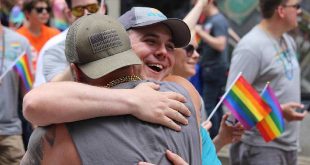Non-binary is a term used to describe a gender identity that falls outside of the traditional gender binary of male and female. Non-binary individuals may identify as a mix of both genders, as no gender, or as a gender that is different from male or female.
There is a wide range of non-binary gender identities, and each person’s experience is unique. Some non-binary individuals may feel more masculine or feminine at different times, while others may feel a constant mix of both. Some may use gender-neutral pronouns, such as they/them, while others may use traditional pronouns that align with their gender expression.
It is important to recognize that non-binary is a valid and legitimate gender identity. Non-binary individuals have always existed, but it is only in recent years that society has become more aware and accepting of non-binary identities. However, non-binary individuals still face discrimination and exclusion in many areas of life, including employment, housing, healthcare, and education.
There are many ways to be supportive and respectful of non-binary individuals. One of the most important things is to use the pronouns that an individual prefers. If you are unsure of someone’s pronouns, it is okay to ask. It is also important to be mindful of the language you use and to avoid making assumptions about someone’s gender based on their appearance or name.
It is also crucial to advocate for the rights and protections of non-binary individuals. This can involve supporting policies and legislation that protect non-binary individuals from discrimination, and speaking out against discrimination and prejudice when you see it.
In conclusion, non-binary is a diverse and valid gender identity that should be recognized and respected. By being supportive and inclusive, we can create a more welcoming and accepting society for all individuals, regardless of their gender identity.
This list of ten questions about non-binary gender identities that cover a range of topics related to non-binary identities, including common misconceptions, challenges faced by non-binary individuals, ways to be a supportive ally, and inclusive terminology.
- What are some common misconceptions about non-binary individuals?
- Non-binary individuals are confused about their gender identity
- Non-binary individuals are trying to be “trendy” or “different”
- Non-binary individuals are transitioning to a different gender
- Non-binary individuals are attracted to everyone
- What are some common challenges that non-binary individuals face?
- Difficulty finding inclusive healthcare providers
- Inability to obtain accurate identification documents
- Lack of legal protections in some states or countries
- Discrimination and prejudice from others
- Difficulty finding representation in media and pop culture
- What are some ways to be a supportive ally to non-binary individuals?
- Use the pronouns that an individual prefers
- Educate yourself about non-binary identities and experiences
- Speak out against discrimination and prejudice when you see it
- Support policies and legislation that protect non-binary individuals
- Create inclusive spaces and environments
- What are some common gender-neutral pronouns?
- They/them/theirs
- Ze/hir/hirs
- Xe/xem/xyr
- Ey/em/eir
- What are some ways to be inclusive of non-binary individuals in the workplace?
- Offer gender-neutral restrooms and changing facilities
- Use gender-neutral language in job descriptions and other materials
- Allow employees to use their preferred name and pronouns
- Include non-binary individuals in diversity and inclusion initiatives
- How can non-binary individuals find supportive resources and communities?
- Look for local LGBTI+ organizations and meetups
- Join online communities and forums for non-binary individuals
- Seek out non-binary-inclusive therapists or healthcare providers
- Attend events and conferences focused on non-binary issues
- What are some common gender-inclusive terms?
- Partner instead of boyfriend/girlfriend
- Sibling instead of brother/sister
- Folks instead of guys
- Humankind instead of mankind
- How can parents support their non-binary child?
- Respect their child’s gender identity and use their preferred pronouns
- Educate yourself about non-binary identities and experiences
- Advocate for your child’s rights and needs in school and other environments
- Support your child in finding supportive communities and resources
- How can non-binary individuals navigate relationships and dating?
- Be open and honest with your partner about your gender identity and pronouns
- Respect your partner’s pronouns and gender identity
- Talk to your partner about boundaries and boundaries related to gender
- Seek out inclusive and supportive dating apps and communities
- How can non-binary individuals advocate for themselves and their needs?
- Educate yourself about your rights and the resources available to you
- Seek out supportive communities and allies
- Reach out to organizations that advocate for LGBTI+ rights
- Share your story and experiences to help raise awareness and understanding of non-binary identities.
 Lesbian, Gay, Bisexual, Transgender & Intersex News Lesbian News, Gay News, Bisexual News, Transgender News, Intersex News, LGBTI News
Lesbian, Gay, Bisexual, Transgender & Intersex News Lesbian News, Gay News, Bisexual News, Transgender News, Intersex News, LGBTI News




